
Maiduguri: The Heartbeat of North-East Nigeria
Maiduguri, the capital of Borno State, is a vibrant city brimming with rich history, cultural diversity, and warm hospitality. Known as the 'Home of Peace,' Maiduguri offers tourists a unique glimpse into the traditional and modern facets of Nigerian life. The city is a hub of local trade, featuring bustling markets where you can find traditional crafts, textiles, and local delicacies. A visit to the Shehu's Palace is a must, where you can learn about the Kanem-Bornu Empire and its significance in African history. The palace is an architectural marvel, showcasing Islamic and traditional designs. Another iconic spot is the Maiduguri Monday Market, one of the largest markets in West Africa. Here, you can immerse yourself in the local culture, haggle for goods, and experience the vibrant atmosphere. Maiduguri is also home to several parks and green spaces, like the Maiduguri Zoological Garden and the Sambisa Forest, which offer a tranquil escape from the city's hustle and bustle. For those interested in academia, the University of Maiduguri is a prominent institution that contributes to the city's dynamic and youthful vibe. Despite the challenges the city has faced in recent years, the resilience and spirit of its people shine through, making Maiduguri a destination that leaves a lasting impression on all who visit.
Local tips in Maiduguri
- Visit the Shehu's Palace early in the morning to avoid crowds and get the best guided tours.
- Bring cash when visiting the Maiduguri Monday Market as many vendors do not accept credit cards.
- Wear modest clothing, especially when visiting religious or cultural sites, to respect local customs.
- Try the local dish, 'Tuwo Shinkafa,' a rice pudding that is a staple in Maiduguri cuisine.
- Stay updated on local news and travel advisories for safety information.
Maiduguri: The Heartbeat of North-East Nigeria
Maiduguri, the capital of Borno State, is a vibrant city brimming with rich history, cultural diversity, and warm hospitality. Known as the 'Home of Peace,' Maiduguri offers tourists a unique glimpse into the traditional and modern facets of Nigerian life. The city is a hub of local trade, featuring bustling markets where you can find traditional crafts, textiles, and local delicacies. A visit to the Shehu's Palace is a must, where you can learn about the Kanem-Bornu Empire and its significance in African history. The palace is an architectural marvel, showcasing Islamic and traditional designs. Another iconic spot is the Maiduguri Monday Market, one of the largest markets in West Africa. Here, you can immerse yourself in the local culture, haggle for goods, and experience the vibrant atmosphere. Maiduguri is also home to several parks and green spaces, like the Maiduguri Zoological Garden and the Sambisa Forest, which offer a tranquil escape from the city's hustle and bustle. For those interested in academia, the University of Maiduguri is a prominent institution that contributes to the city's dynamic and youthful vibe. Despite the challenges the city has faced in recent years, the resilience and spirit of its people shine through, making Maiduguri a destination that leaves a lasting impression on all who visit.
When is the best time to go to Maiduguri?
Iconic landmarks you can’t miss
Grand Pinnacle Luxury Hotel
Discover elegance and convenience at Grand Pinnacle Luxury Hotel near Maiduguri International Airport, the perfect retreat for discerning travelers.
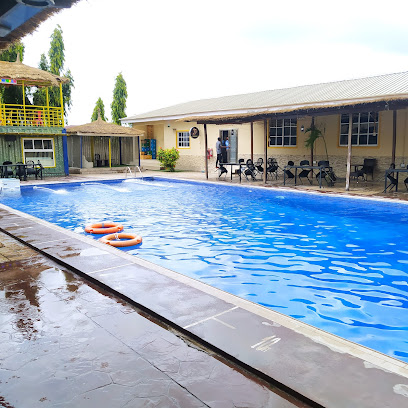
Barwee Luxury Suites
Discover the comfort and charm of Barwee Luxury Suites, a perfect retreat for travelers in Maiduguri, Borno State, Nigeria.
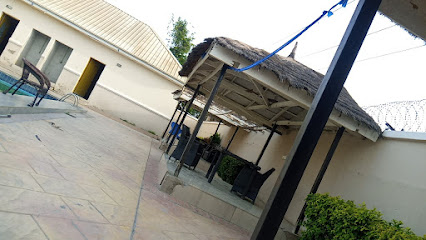
Zara City Plaza
Explore the vibrant shopping and dining scene at Zara City Plaza, Maiduguri's premier destination for tourists and locals alike.
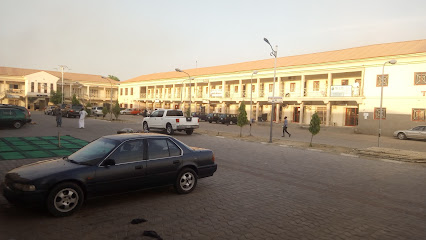
Satus Hotel
Discover comfort and convenience at Satus Hotel, your ideal accommodation in the heart of Maiduguri, Nigeria.
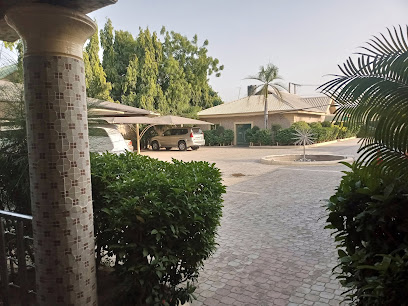
Dujima International Hotel
Discover comfort and culture at Dujima International Hotel, your perfect base for exploring Maiduguri's rich heritage and vibrant atmosphere.

Zoo Bridge
Explore the scenic beauty and cultural significance of Zoo Bridge in Maiduguri, a perfect blend of nature and urban life.
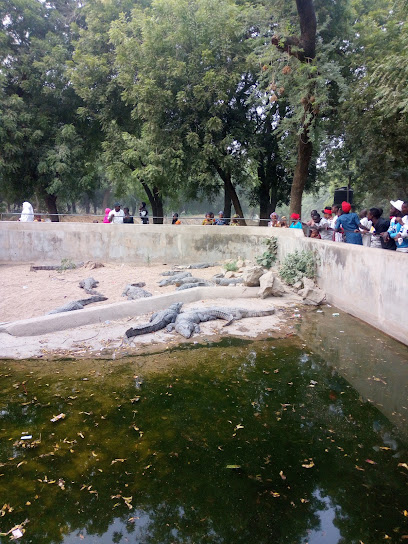
Indimi Jumma'a mosque
Discover the spiritual and architectural beauty of Indimi Jumma'a Mosque, a cultural landmark in Maiduguri, Nigeria, reflecting the rich Islamic heritage.
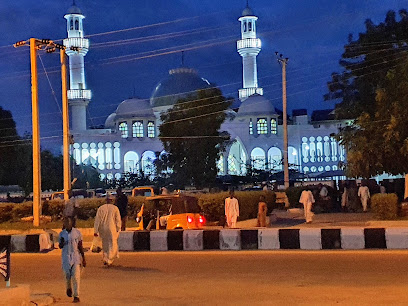
Galtimari Bridge
Explore the stunning Galtimari Bridge in Maiduguri, a remarkable architectural feat with breathtaking views and a rich cultural backdrop.
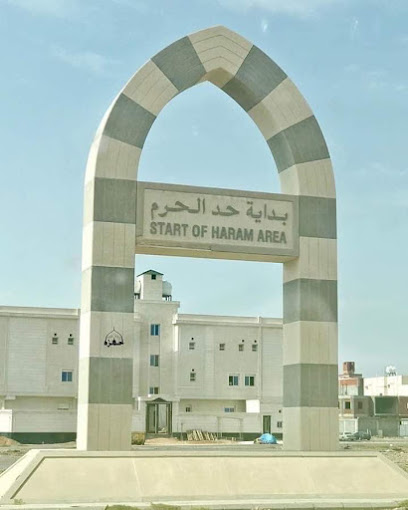
Unimaid Garden
Discover the tranquil beauty of Unimaid Garden, a serene retreat in Maiduguri perfect for relaxation and nature appreciation.
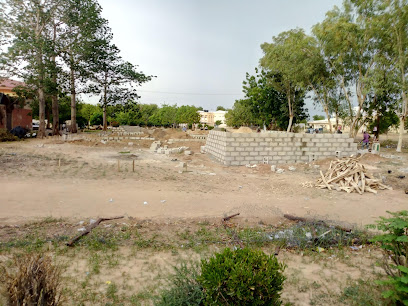
Monday Market
Explore the vibrant atmosphere of Monday Market in Maiduguri for an authentic taste of local culture and commerce.
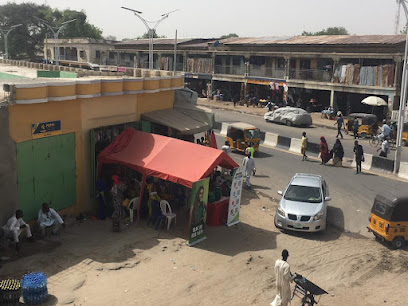
Sanda Kyarimi Park
Explore the enchanting wildlife at Sanda Kyarimi Park, a premier zoo in Maiduguri offering fun and educational experiences for all ages.
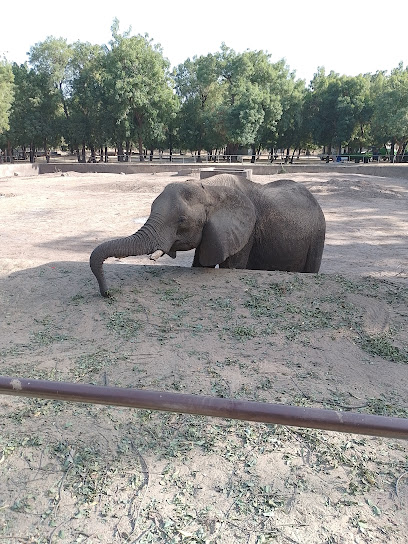
Shagari Lowcost Maiduguri
Shagari Lowcost in Maiduguri: Your gateway to affordable fashion and local culture in the heart of Borno.
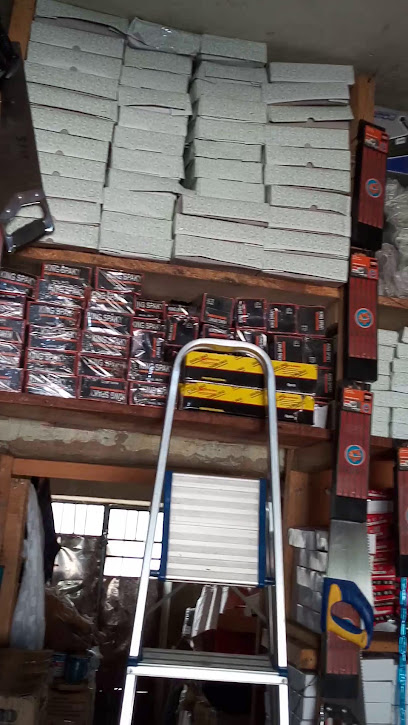
A'amal yum-yum ice cream
Discover a flavorful paradise at A'amal Yum-Yum Ice Cream in Maiduguri, where delightful treats await every visitor.
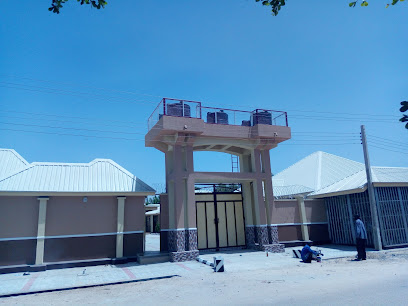
Maiduguri Central Mosque
Explore the Maiduguri Central Mosque, a stunning architectural marvel and spiritual center in Borno, showcasing the rich cultural heritage of the region.
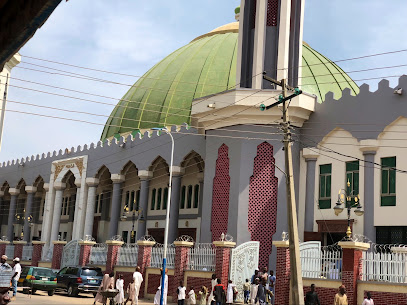
EYN CHURCH MAIDUGURI
Explore the EYN Church in Maiduguri, a vibrant center of faith and community, reflecting the rich cultural heritage of Borno, Nigeria.
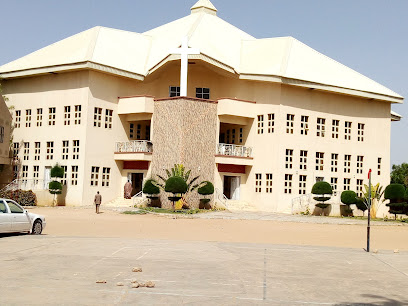
Unmissable attractions to see
Unimaid Garden
Discover the serene beauty of Unimaid Garden in Maiduguri, a lush escape within the University of Maiduguri, perfect for relaxation and exploration.
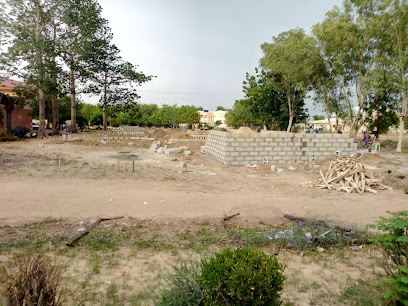
Sanda Kyarimi Park
Discover the rich wildlife and serene landscapes of Sanda Kyarimi Park, a top destination for family fun and nature education in Maiduguri.
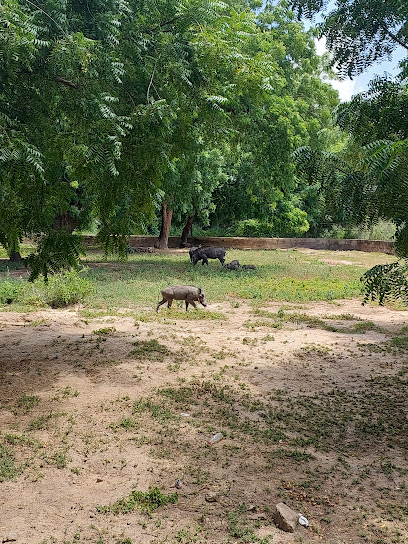
Borno State Museum
Explore the depth of Borno's history and culture at the Borno State Museum, a must-see for travelers in Maiduguri.
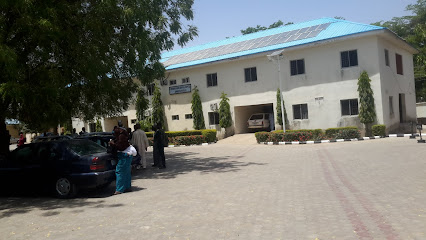
Mai Deribe Palace
Explore the rich cultural heritage and stunning architecture of Mai Deribe Palace in Maiduguri, a must-visit tourist attraction in Borno State.
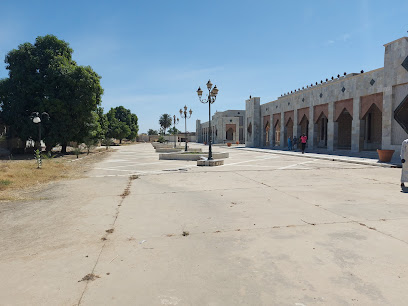
Chad Basin National Park
Experience the breathtaking landscapes and diverse wildlife of Chad Basin National Park, a hidden jewel in Nigeria's northeastern region.
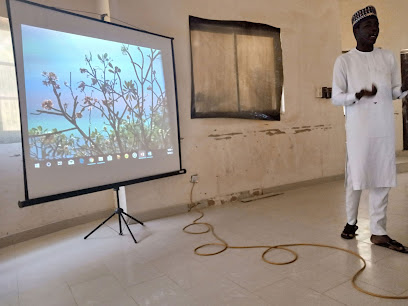
Magumeri Grasing Reserve
Explore the lush landscapes and vibrant wildlife of Magumeri Grasing Reserve, a hidden gem in Borno, Nigeria, perfect for nature lovers and adventurers.
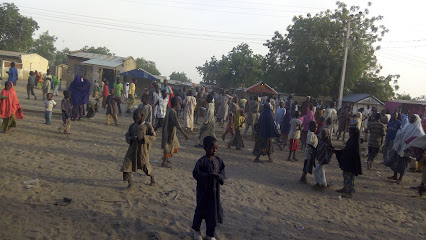
SUG GARDEN
Explore the tranquil beauty of Sug Garden in Maiduguri, a perfect escape for nature lovers and those seeking serenity.

KSTA FLOWER GARDEN
Explore the vibrant beauty of KSTA Flower Garden in Maiduguri – a peaceful retreat showcasing stunning flora and natural tranquility.

BEXIL GARDENS
Discover the tranquil beauty of Bexil Gardens in Maiduguri, a perfect escape for nature lovers and families alike.

Aisha plaza
Discover tranquility at Aisha Plaza, a serene park in Maiduguri perfect for relaxation and enjoying nature's beauty.

Essential places to dine
HEBRON FOODS
Experience authentic Nigerian cuisine at Hebron Foods in Maiduguri - where tradition meets taste in every dish.
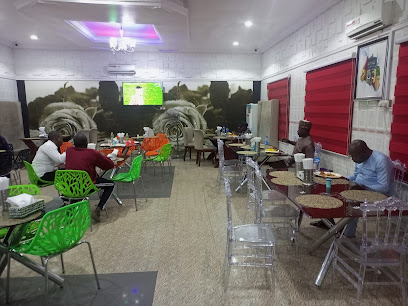
City Star Restaurant & Accommodation
Discover the flavors of Maiduguri at City Star Restaurant & Accommodation – where local cuisine meets comfort.
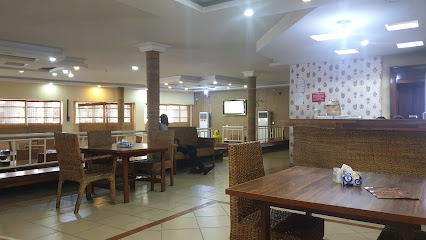
Hannas Restaurant
Discover authentic flavors at Hannas Restaurant in Maiduguri - where delicious breakfasts meet warm hospitality.
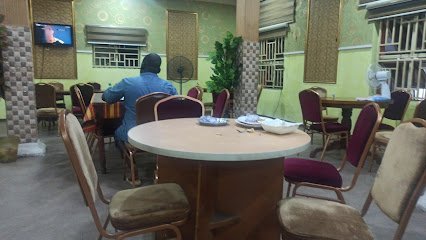
Favour Restaurant
Discover authentic Nigerian breakfast delights at Favour Restaurant in Maiduguri, where local flavors meet warm hospitality.
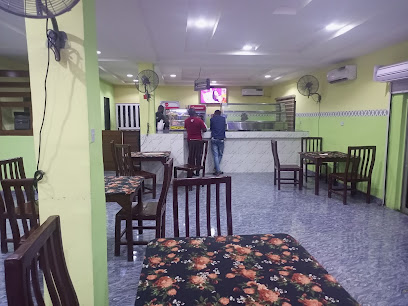
Alheri restaurant
Discover authentic Nigerian breakfast at Alheri Restaurant in Maiduguri - where every meal tells a story.
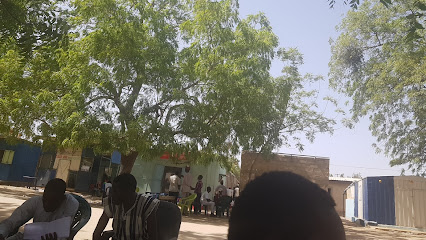
Hadiza Bulongu Restaurant
Discover authentic Nigerian cuisine at Hadiza Bulongu Restaurant in Maiduguri - where tradition meets taste.
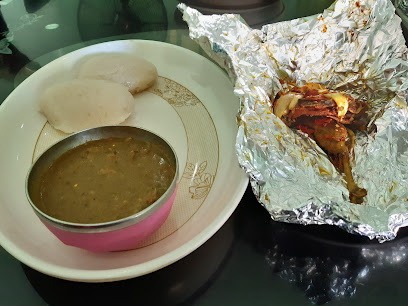
LM Bakery & Restaurant
Discover authentic Nigerian cuisine at LM Bakery & Restaurant in Maiduguri - where every meal tells a story.
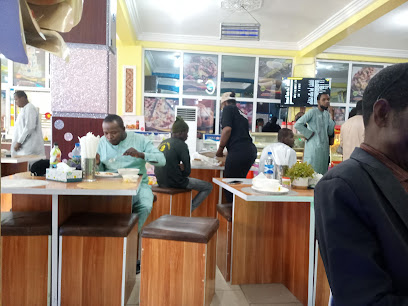
Zaimah fresh
Discover authentic Nigerian flavors at Zaimah Fresh in Maiduguri - where every meal is a celebration of freshness and tradition.
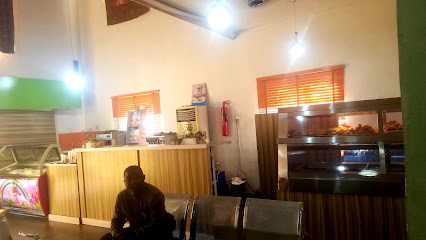
CHILL IN Restaurant
Savor delicious local and international cuisine at CHILL IN Restaurant in Maiduguri, where every meal is a celebration of flavor.
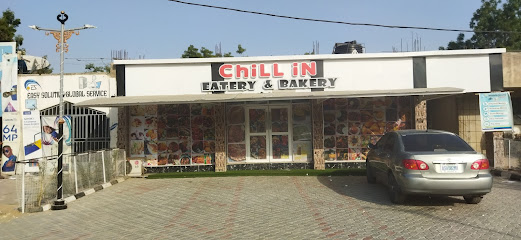
Rahma Restaurant
Experience authentic Nigerian breakfast at Rahma Restaurant in Maiduguri - where tradition meets taste.
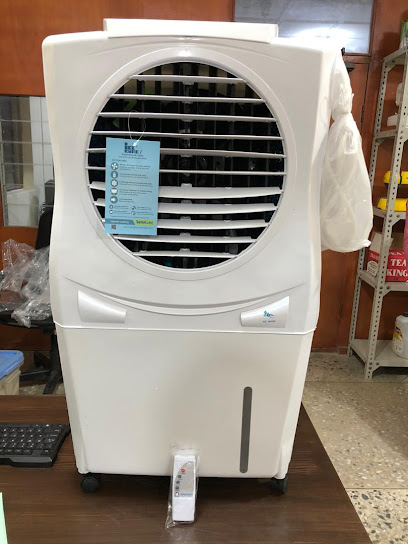
Street Side
Discover the culinary delights of Maiduguri at Street Side - where local flavors meet international cuisine in a vibrant setting.
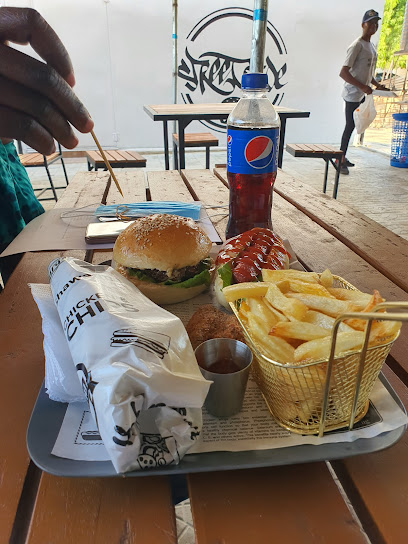
Silva Joint
Discover the flavors of Nigeria at Silva Joint in Maiduguri - where every meal is an experience worth savoring.
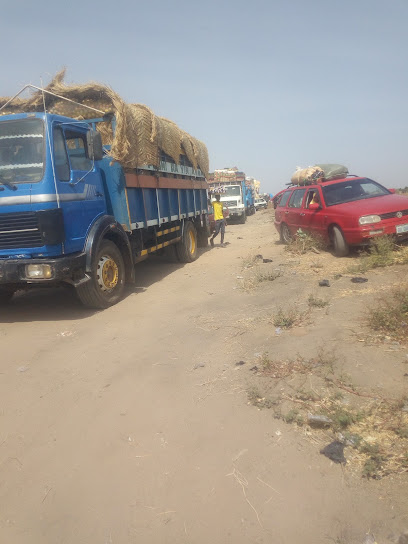
Al-HANA RESTAURANT & PATISSERIE
Discover the flavors of Nigeria at Al-HANA RESTAURANT & PATISSERIE, where every meal tells a story.
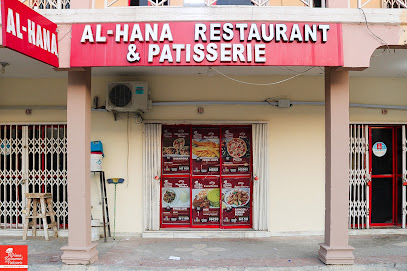
El-Habib Restaurant
Discover authentic Nigerian cuisine at El-Habib Restaurant in Maiduguri—where delicious flavors meet vibrant culture.
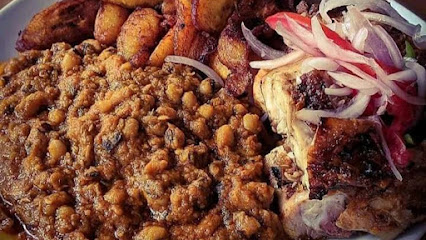
Jaja Suya spot
Savor the authentic taste of Nigeria at Jaja Suya Spot in Maiduguri - where traditional flavors meet vibrant culture.
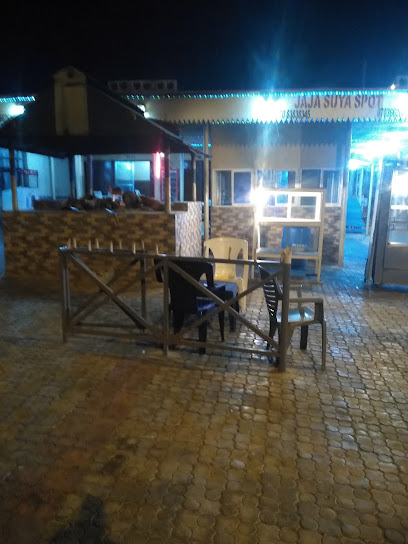
Markets, malls and hidden boutiques
Today's Super Store
Explore a wide variety of groceries and local products at Today's Super Store in Maiduguri, a must-visit for all food lovers.
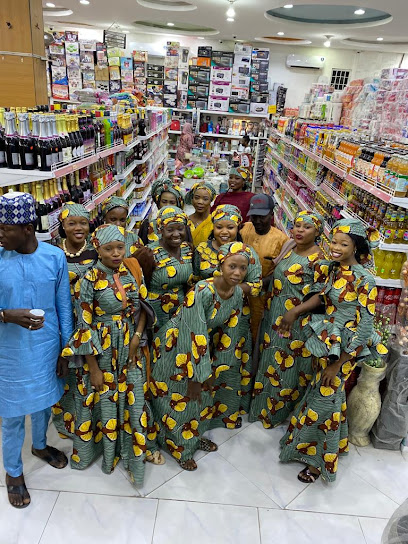
Gumalti Super Store
Explore the vibrant Gumalti Super Store in Maiduguri for local goods, unique souvenirs, and a taste of authentic Borno culture.
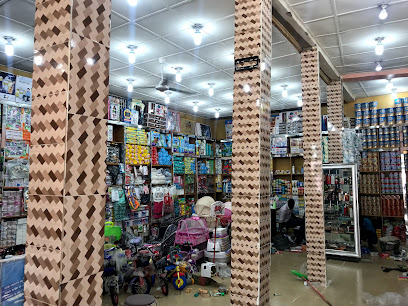
Gudumbali Shopping Complex
Explore a vibrant shopping experience at Gudumbali Shopping Complex in Maiduguri, where local culture meets diverse retail offerings.
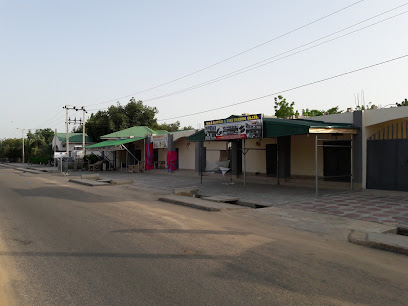
Macaw Emporium
Explore the vibrant flavors of Maiduguri at Macaw Emporium, where local culture meets quality grocery shopping.
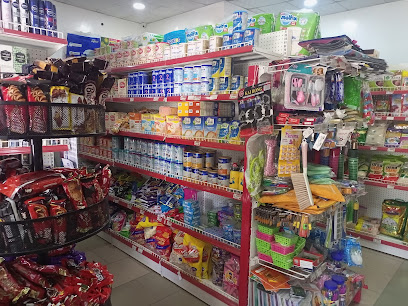
Ummis Exquisite
Explore Ummis Exquisite in Maiduguri for all your home improvement needs, from tools to expert advice in a welcoming atmosphere.

Mantasi'u Shop
Discover the lively Mantasi'u Shop in Maiduguri, a shopping mall filled with local treasures and cultural experiences.

YERWA STORE
Explore YERWA STORE in Maiduguri for an unforgettable shopping experience featuring local goods and vibrant culture.
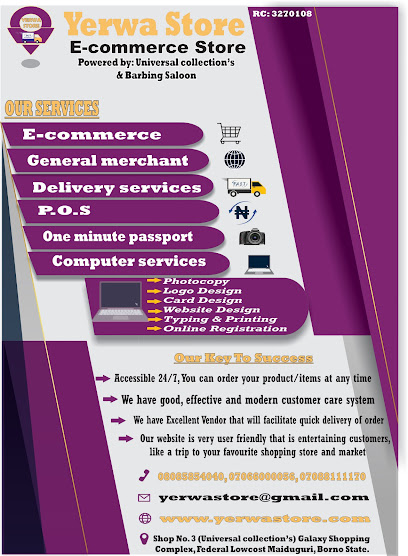
A AND A Butique
Explore the unique styles and craftsmanship of Maiduguri at A AND A Boutique, a treasure trove for fashion lovers and culture enthusiasts.
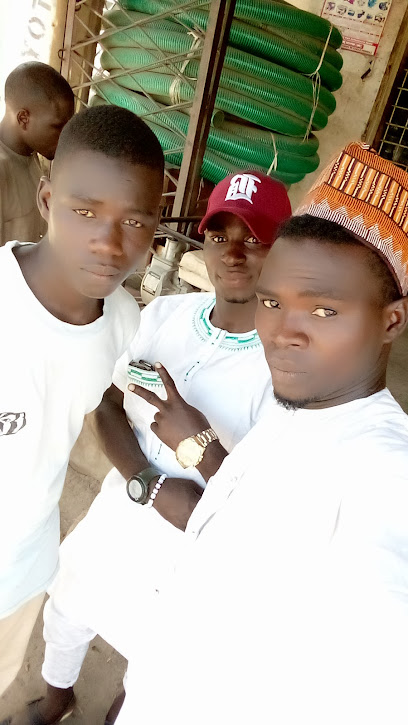
RASH GIFT STORES
Discover unique gifts and household treasures at Rash Gift Stores in Maiduguri, showcasing local craftsmanship and culture.
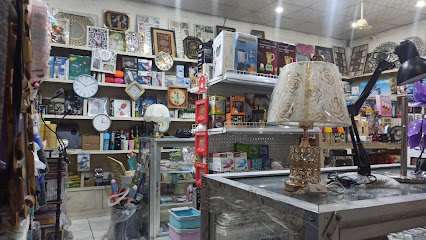
Abunu's Shop
Explore the vibrant home goods selection at Abunu's Shop in Maiduguri, where tradition meets modernity in every unique find.

Bual store
Discover unique home goods and local craftsmanship at Bual Store, a vibrant shopping destination in Maiduguri, Nigeria.
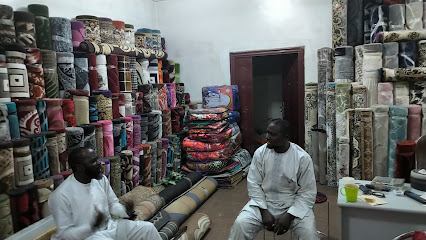
ABDULRAZAQ MAMMAN
Explore the vibrant offerings of Abdulrazak Mamman, your local general store in Maiduguri for snacks, essentials, and a touch of local culture.

Manye plus store
Explore the best of fashion accessories at Manye Plus Store in Maiduguri, where style meets affordability in a vibrant shopping atmosphere.

Unique Boutique
Discover the unique fashion treasures of Maiduguri at Unique Boutique, where local craftsmanship meets contemporary style.
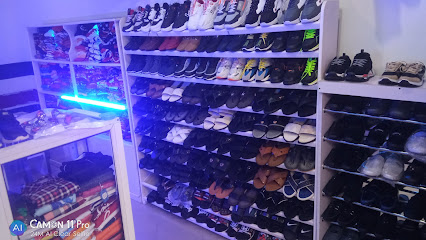
Muaish general enterprise
Explore Muaish General Enterprise for quality home goods and unique local crafts in Maiduguri, a shopper's paradise in Borno, Nigeria.
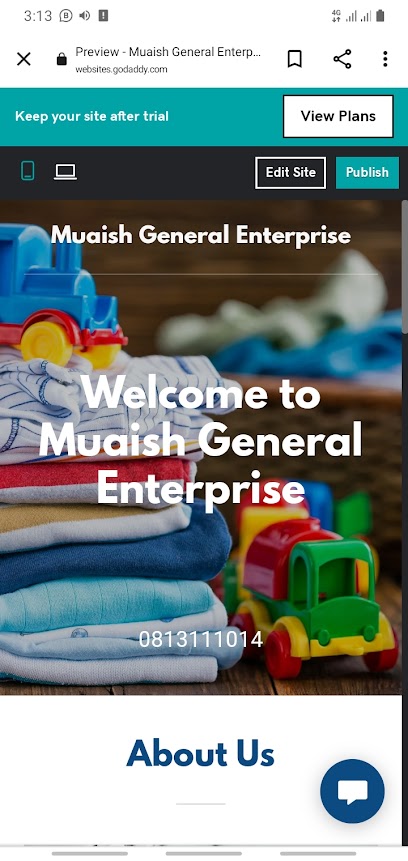
Essential bars & hidden hideouts
City Star Restaurant & Accommodation
Discover the rich flavors of Maiduguri at City Star Restaurant & Accommodation, where local cuisine meets a warm, inviting atmosphere.
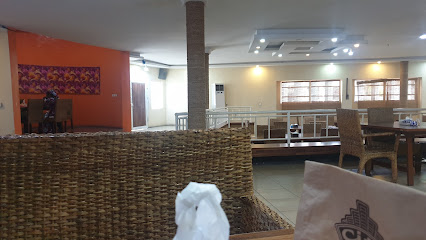
Hannas Restaurant
Savor the authentic flavors of Maiduguri at Hanna's Restaurant, known for its delicious breakfast and inviting atmosphere.
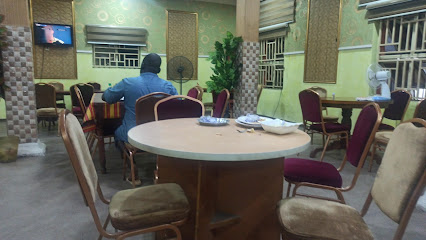
NAF Mess
Experience vibrant local culture and nightlife at NAF Mess, a must-visit bar in Maiduguri, perfect for relaxation and socializing.
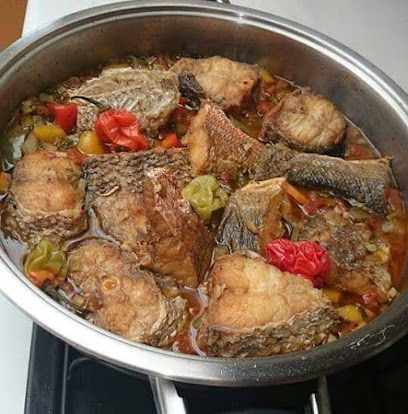
Favour Restaurant
Experience the rich flavors of Maiduguri at Favour Restaurant, your go-to spot for delicious breakfast delights.
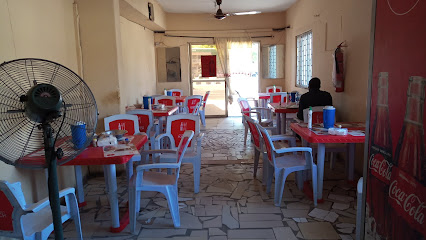
Hadiza Bulongu Restaurant
Discover the authentic taste of Borno at Hadiza Bulongu Restaurant, where culinary traditions come to life in a welcoming atmosphere.
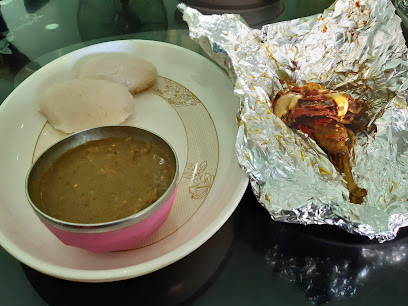
CHILL IN Restaurant
Discover the vibrant culinary scene at CHILL IN Restaurant, where local flavors meet international cuisine in a welcoming atmosphere.
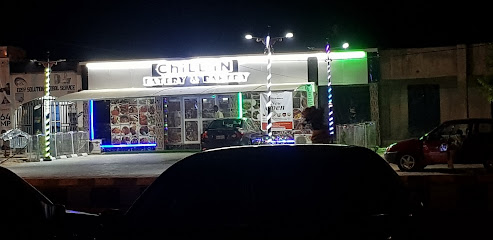
Street Side
Explore the vibrant flavors of Borno at Street Side, a must-visit restaurant in Maiduguri for an authentic culinary experience.
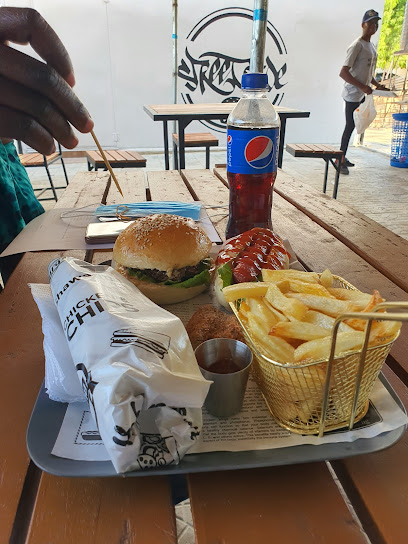
Abakar Indomie Joint
Experience the authentic taste of Maiduguri at Abakar Indomie Joint, where delicious Indomie noodles meet a friendly atmosphere.
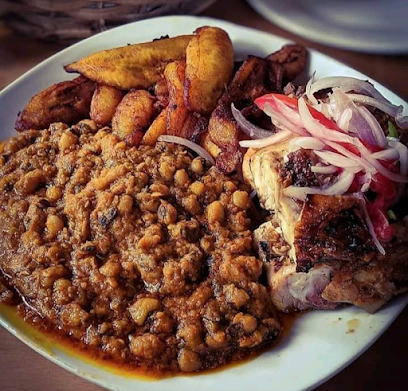
Mshelia barbing saloon
Experience local charm and grooming at Mshelia Barbing Saloon in Maiduguri, where community meets style.
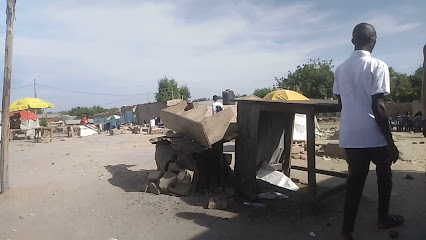
Abbas Indomie Joint
Experience authentic Nigerian cuisine at Abbas Indomie Joint, famed for its delicious Indomie noodles and warm local hospitality in Maiduguri.
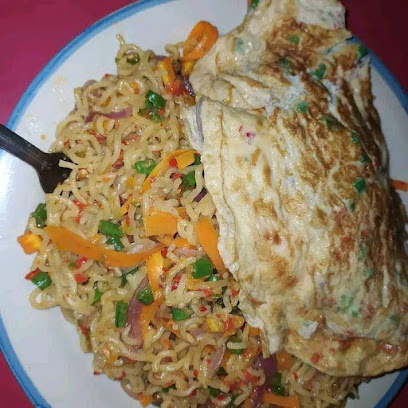
El-Habib Restaurant
Discover the delightful culinary offerings at El-Habib Restaurant, where local and international flavors meet in the heart of Maiduguri.
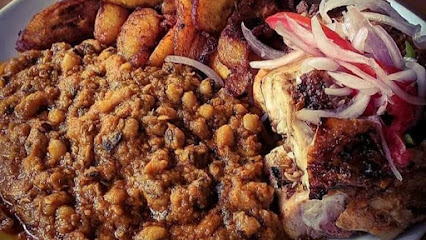
Sahel Hotel and Bar
Discover the lively atmosphere of Sahel Hotel and Bar, a cultural hotspot in Maiduguri, perfect for relaxation and local entertainment.

Kayat Restaurant
Experience the authentic flavors of Nigeria at Kayat Restaurant in Maiduguri, where traditional dishes meet warm hospitality.
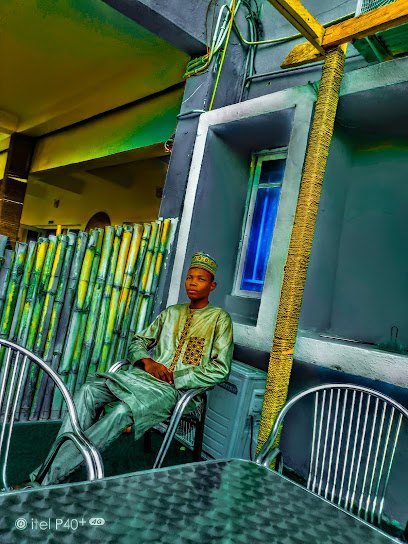
Bite 360
Discover the rich flavors of Nigeria at Bite 360, a top restaurant in Maiduguri offering local delicacies in a cozy ambiance.
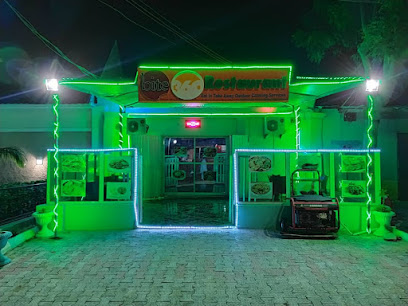
Local Phrases
-
- HelloSannu
[san-nu] - GoodbyeSai watarana
[sai wa-ta-ra-na] - YesEh
[eh] - NoA'a
[a-a] - Please/You're welcomeDon Allah
[don al-lah] - Thank youNa gode
[na go-de] - Excuse me/SorrySamu goma
[sa-mu go-ma] - How are you?Yaya mey ku?
[ya-ya mey ku?] - Fine. And you?Lafiya. Ku yaya?
[la-fi-ya. ku ya-ya?] - Do you speak English?Ku yi fasa Ingilishi?
[ku yi fa-sa in-gi-li-shi?] - I don't understandBa na fahimci
[ba na fa-him-chi]
- HelloSannu
-
- I'd like to see the menu, pleaseIna so ka ba mini, don Allah
[i-na so ka ba mi-ni, don al-lah] - I don't eat meatBa na ci nama
[ba na chi na-ma] - Cheers!Barka da shan ruwa!
[bar-ka da shan ru-wa!] - I would like to pay, pleaseIna so ka kudin, don Allah
[i-na so ka ku-din, don al-lah]
- I'd like to see the menu, pleaseIna so ka ba mini, don Allah
-
- Help!Taimaka!
[ta-i-ma-ka!] - Go away!Zama!
[za-ma!] - Call the Police!Kira kungiyar tsare
[ki-ra kun-gi-yar tsar-re] - Call a doctor!Kira dokar
[ki-ra do-kar] - I'm lostNa kasa
[na ka-sa] - I'm illNa yi bukata
[na yi bu-ka-ta]
- Help!Taimaka!
-
- I'd like to buy...Ina so ka sayi...
[i-na so ka sa-yi...] - I'm just lookingNa so na duba
[na so na du-ba] - How much is it?Shi ne mayafi?
[shi ne ma-ya-fi?] - That's too expensiveWannan yana da kyau
[wan-nan ya-na da kyau] - Can you lower the price?Ka iya sake yin murabbaici?
[ka i-ya sa-ke yin mu-rab-ba-i-ci?]
- I'd like to buy...Ina so ka sayi...
-
- What time is it?Yaya lokacin?
[ya-ya lo-ka-chin?] - It's one o'clockShi ne bakin daya
[shi ne ba-kin da-ya] - Half past (10)Ruba da (goma)
[ru-ba da (go-ma)] - MorningAsuba
[a-su-ba] - AfternoonRana
[ra-na] - EveningYamma
[yam-ma] - YesterdayJibi
[ji-bi] - TodayYau
[yau] - TomorrowGobe
[go-be] - 1Daya
[da-ya] - 2Biyu
[bi-yu] - 3Uku
[u-ku] - 4Huɗu
[hu-du] - 5Biɗa
[bi-da] - 6Shida
[shi-da] - 7Bakwai
[ba-kwai] - 8Takwas
[tak-was] - 9Tara
[ta-ra] - 10Goma
[go-ma]
- What time is it?Yaya lokacin?
-
- Where's a/the...?Ina...?
[i-na...?] - What's the address?Lokaci ne?
[lo-ka-chi ne?] - Can you show me (on the map)?Ka iya nuna mini (a cikin rubutu)?
[ka i-ya nu-na mi-ni (a chi-kin ru-bu-tu)?] - When's the next (bus)?Yaya lokacin gaba (motar)
[ya-ya lo-ka-chin ga-ba (mo-tar)] - A ticket (to ....)Tikiti (zuwa ....)
[ti-ki-ti (zu-wa ....)]
- Where's a/the...?Ina...?
History of Maiduguri
-
Maiduguri, the capital city of Borno State in northeastern Nigeria, was founded in 1907 by the British as a military outpost. Initially established as a small settlement, it rapidly grew due to its strategic location and importance in the region.
-
The region around Maiduguri has a deep historical significance as the heartland of the Borno Empire, which dates back to the 9th century. The Borno Empire, known for its military prowess and advanced administrative system, played a crucial role in the trans-Saharan trade routes, connecting West Africa with North Africa and the Mediterranean.
-
The Kanem-Bornu Dynasty, a powerful African kingdom, ruled over the region for centuries. The dynasty is known for its Islamic scholarship, architectural achievements, and extensive trade networks. The influence of the Kanem-Bornu Dynasty is still evident in Maiduguri's rich cultural heritage.
-
During the colonial period, Maiduguri became an administrative center under British rule. The establishment of railways and roads facilitated the city's growth and integration into the global economy. The colonial era also saw the introduction of Western education and governance structures.
-
After Nigeria's independence in 1960, Maiduguri experienced significant development. The city expanded rapidly with the construction of modern infrastructure, educational institutions, and healthcare facilities. It became a vibrant hub for commerce and education in the northeastern region of Nigeria.
-
Maiduguri is renowned for its rich cultural heritage and vibrant festivals. The Durbar festival, celebrated during Eid al-Fitr and Eid al-Adha, showcases traditional horse riding, music, and dance. The city also hosts various other cultural events that highlight the diverse traditions and customs of the Borno people.
-
In recent years, Maiduguri has been significantly impacted by the Boko Haram insurgency, which began in 2009. The city has faced numerous attacks, leading to a humanitarian crisis. Despite these challenges, Maiduguri has shown remarkable resilience, with ongoing efforts to rebuild and restore peace in the region.
-
Maiduguri serves as a major economic center in northeastern Nigeria. The city is known for its bustling markets, such as the Monday Market, where a wide variety of goods, including textiles, livestock, and agricultural products, are traded. Maiduguri's strategic location also makes it a key player in cross-border trade with neighboring countries.
-
Maiduguri is home to several prominent educational institutions, including the University of Maiduguri, established in 1975. The university is a leading center for research and education in the region, contributing to the intellectual and socio-economic development of Maiduguri and its surroundings.
Maiduguri Essentials
-
Maiduguri is accessible by air and road. The Maiduguri International Airport (MIU) serves as the main entry point for international and domestic flights. Several airlines operate regular flights to and from major Nigerian cities like Abuja and Lagos. By road, Maiduguri is connected to other parts of Nigeria via a network of highways. Buses and private car hires are available for intercity travel.
-
Within Maiduguri, various modes of transportation are available. Motorcycles (okadas), tricycles (keke napep), and taxis are the most common means of getting around the city. However, for safety, it is advisable to use registered taxis or ride-hailing services. Public buses are available but may be crowded and less reliable. Car rentals are also an option for those who prefer a more private mode of transportation.
-
The official currency in Nigeria is the Nigerian Naira (NGN). Credit and debit cards are accepted in major hotels, restaurants, and supermarkets, but it is advisable to carry cash for smaller transactions and in local markets. ATMs are available throughout the city, but ensure you withdraw cash during the day and in secure locations.
-
While Maiduguri has faced security challenges in the past, the situation has improved. However, certain areas remain riskier than others. It is advisable to avoid neighborhoods such as Gwange and Custom areas known for higher crime rates. Always stay updated on local news, avoid traveling at night, and follow the advice of local authorities and your hotel.
-
In case of an emergency, dial 112 for immediate assistance. The local police and medical facilities are available in Maiduguri. Ensure you have travel insurance that covers medical emergencies. For minor health issues, pharmacies are available, but it is advisable to carry basic medications. Familiarize yourself with the location of the nearest hospital to your accommodation.
-
Fashion: Do dress modestly, as Maiduguri is a predominantly Muslim city. Avoid wearing revealing clothing. Religion: Do respect local customs and traditions. Always ask for permission before taking photographs, especially in religious sites. Public Transport: Do negotiate fares upfront when using okadas or tricycles. Don't forget to have small denominations of cash ready. Greetings: Do greet people with a handshake and use formal titles. Eating & Drinking: Do try local dishes like Tuwo Shinkafa and Kunun Aya. Don't eat or drink in public during the fasting month of Ramadan.
-
To experience Maiduguri like a local, visit the Monday Market, one of the largest markets in the region, where you can buy local crafts, textiles, and spices. Engage with locals; they are often friendly and willing to share stories about the city's history and culture. Don't miss visiting the University of Maiduguri for a glimpse of academic life and its botanical garden. For a unique experience, take a stroll along the Alau Dam and enjoy the scenic views.
Trending Landmark in Maiduguri
Nearby Cities to Maiduguri
-
Things To Do in Maroua
-
Things To Do in N'Djamena
-
Things To Do in Garoua
-
Things To Do in Yola
-
Things To Do in Kano
-
Things To Do in Ngaoundéré
-
Things To Do in Jos
-
Things To Do in Kaduna
-
Things To Do in Abuja
-
Things To Do in Foumban
-
Things To Do in Bamenda
-
Things To Do in Mbouda
-
Things To Do in Bafoussam
-
Things To Do in Dschang
-
Things To Do in Mamfe








